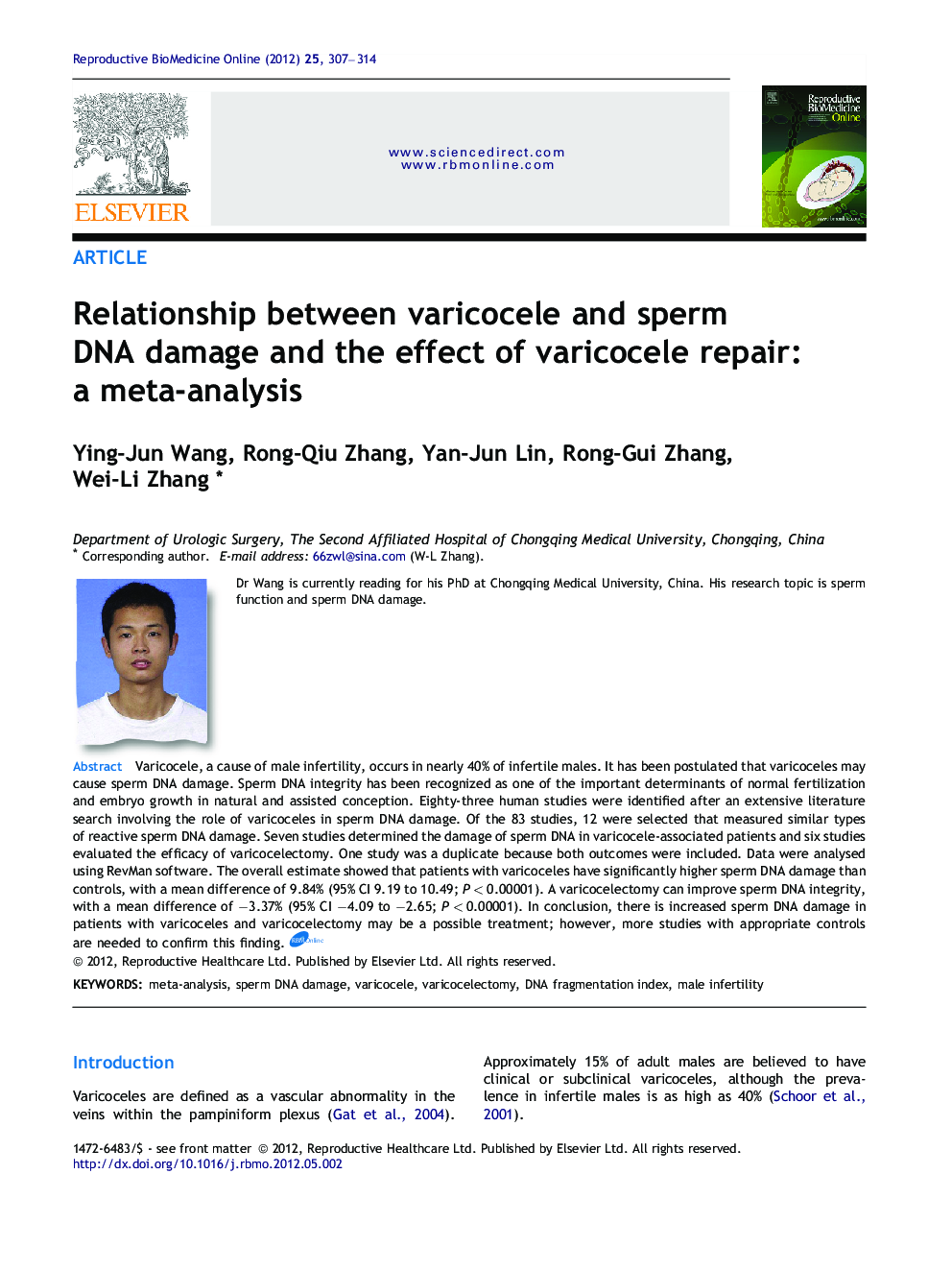| Article ID | Journal | Published Year | Pages | File Type |
|---|---|---|---|---|
| 3970646 | Reproductive BioMedicine Online | 2012 | 8 Pages |
Varicocele, a cause of male infertility, occurs in nearly 40% of infertile males. It has been postulated that varicoceles may cause sperm DNA damage. Sperm DNA integrity has been recognized as one of the important determinants of normal fertilization and embryo growth in natural and assisted conception. Eighty-three human studies were identified after an extensive literature search involving the role of varicoceles in sperm DNA damage. Of the 83 studies, 12 were selected that measured similar types of reactive sperm DNA damage. Seven studies determined the damage of sperm DNA in varicocele-associated patients and six studies evaluated the efficacy of varicocelectomy. One study was a duplicate because both outcomes were included. Data were analysed using RevMan software. The overall estimate showed that patients with varicoceles have significantly higher sperm DNA damage than controls, with a mean difference of 9.84% (95% CI 9.19 to 10.49; P < 0.00001). A varicocelectomy can improve sperm DNA integrity, with a mean difference of −3.37% (95% CI −4.09 to −2.65; P < 0.00001). In conclusion, there is increased sperm DNA damage in patients with varicoceles and varicocelectomy may be a possible treatment; however, more studies with appropriate controls are needed to confirm this finding.A varicocele is an important cause of male infertility and occurs in nearly 40% of infertile males. The recent understanding of the effect of varicoceles in male reproduction has led some researchers to postulate varicoceles as the possible cause of sperm DNA damage. Eighty-three human studies were identified after an extensive literature search involving the role of varicoceles in sperm DNA damage. Of the 83 studies, 12 were selected that measured similar types of reactive sperm DNA damage by a similar method. Seven studies determined the damage of sperm DNA in varicocele-associated patients and six studies evaluated the efficacy of varicocelectomy. One study was a duplicate because both outcomes were included. The data were then entered in the RevMan software for analysis. The overall estimate showed that patients with varicoceles have significantly higher sperm DNA damage than controls, with a mean difference of 9.84% (95% CI 9.19 to 10.49; P < 0.00001). A varicocelectomy can improve sperm DNA integrity, with a mean difference of −3.37% (95% CI −4.09 to −2.65; P < 0.00001). Based on the results, it can be concluded that there is increased sperm DNA damage in patients with varicoceles and that varicocelectomy may be a possible treatment; however, more studies with appropriate controls are needed to confirm this finding.
